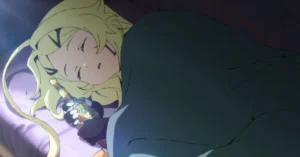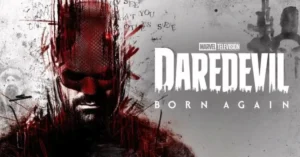A new Korean romantic fantasy drama on Netflix, Genie, Make A Wish, has a surprising and deep connection to the iconic Japanese anime Death Note. While one is a love story about a genie and a psychopath and the other is a psychological thriller about a killer notebook, they are both built on the same supernatural idea: death is managed by otherworldly beings who can see and bargain with the time humans have left.
The Unseen Watchers of Life and Death
At first glance, the two stories could not be more different. Death Note is a dark cat-and-mouse game between a high school student who gains the power to kill and the detective trying to stop him. Genie, Make A Wish is a fantasy rom-com about a genie, Iblis (played by Kim Woo-bin), who is freed after centuries trapped in a lamp by a unique young woman, Ki Ka-young (Suzy).
However, both stories feature supernatural agents who govern death. In Death Note, these are the Shinigami, gods of death who can see the names and remaining lifespans of every human. They use their Death Notes to end lives, often after making deals with people.
Genie, Make A Wish has a very similar character. The Angel of Death, Ejllael, watches over humans and can see a glowing life span counter floating above their heads, silently measuring how much time they have left. This visual of a cosmic bureaucrat coldly watching the clock on a human soul is instantly recognizable to Death Note fans and serves the same purpose in both stories: it makes a character’s doom something that can be measured.
Time Is the Ultimate Currency
Once a story establishes that life can be measured, it can also be traded. This is a central idea in both shows. Death Note has the “Shinigami Eye Deal,” where a human can give up half of their remaining life to gain the power to see others’ lifespans. The Shinigami themselves can also burn their own existence to protect a human they care about.
Genie, Make A Wish builds its romance and tragedy on this same logic. The drama explores the cost of wishes and the value of a mortal life. When Iblis, an immortal genie, begins to fall for a human, he must consider abandoning his divine contract and sacrificing his immortality, choosing a mortal fate for love. The series insists that every supernatural gift has a hidden price, and time is the one resource that cannot be replaced.
Rules Make the Magic Real
Both universes are defined by strict cosmic rules that prevent magic from being an easy solution. Death Note is famous for its meticulous laws: names must be written correctly, victims can be controlled only for a short time before their death, and even gods of death have limits.
Similarly, in Genie, Make A Wish, the genie is bound by a contract with a higher power. Each wish he grants is weighed against a divine order that is enforced by the Angel of Death. When characters like Iblis and Ka-young rebel against this system to be together, their love story carries more weight because they are testing the limits of destiny itself. Their choices are risky and could rewrite fate at a terrible cost.
“Both narratives insist that life has a ledger and that every gift of time carries a hidden price.”
A Shared Idea Across Cultures
The connection shows how a Korean romance and a Japanese thriller can tap into the same ancient mythology. The figure of a death watcher—whether called a Shinigami, an angel, or a djinn—is a powerful symbol that transcends culture. It speaks to a universal fear about time, mortality, and how much control we have over our own lives.
For viewers who know and love Death Note, spotting this connection in Genie, Make A Wish adds a new layer of enjoyment. For those new to the concept, it frames the K-Drama as a deeper, more mythic story about love’s battle against the inevitability of death. It proves that the fear of running out of time is a powerful force in storytelling, no matter the genre.
The drama, which reunites stars Kim Woo-bin and Suzy, is described as a chaotic and fun magic carpet ride of a show. It uses its fantasy elements to explore deep questions about human greed and selflessness, all while hiding a clever nod to one of anime’s most famous tales of power and death.
Also Read: The Copyright Twist in Your New Favorite K-Drama Genie Make A Wish: Why Aladdin Gets a Free Pass


























